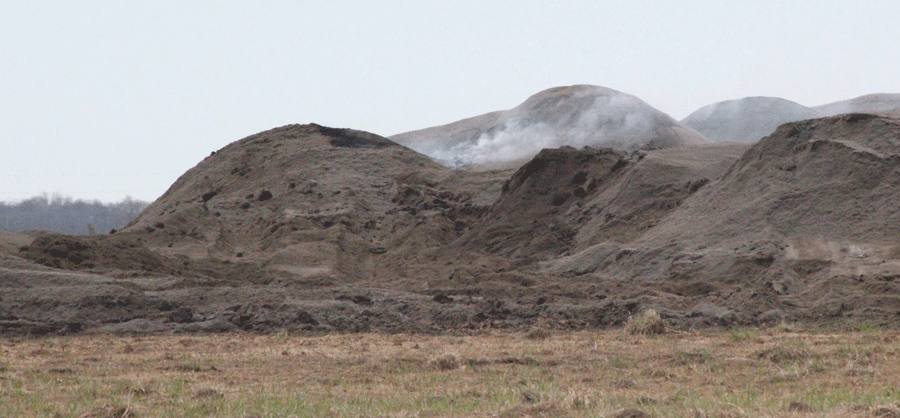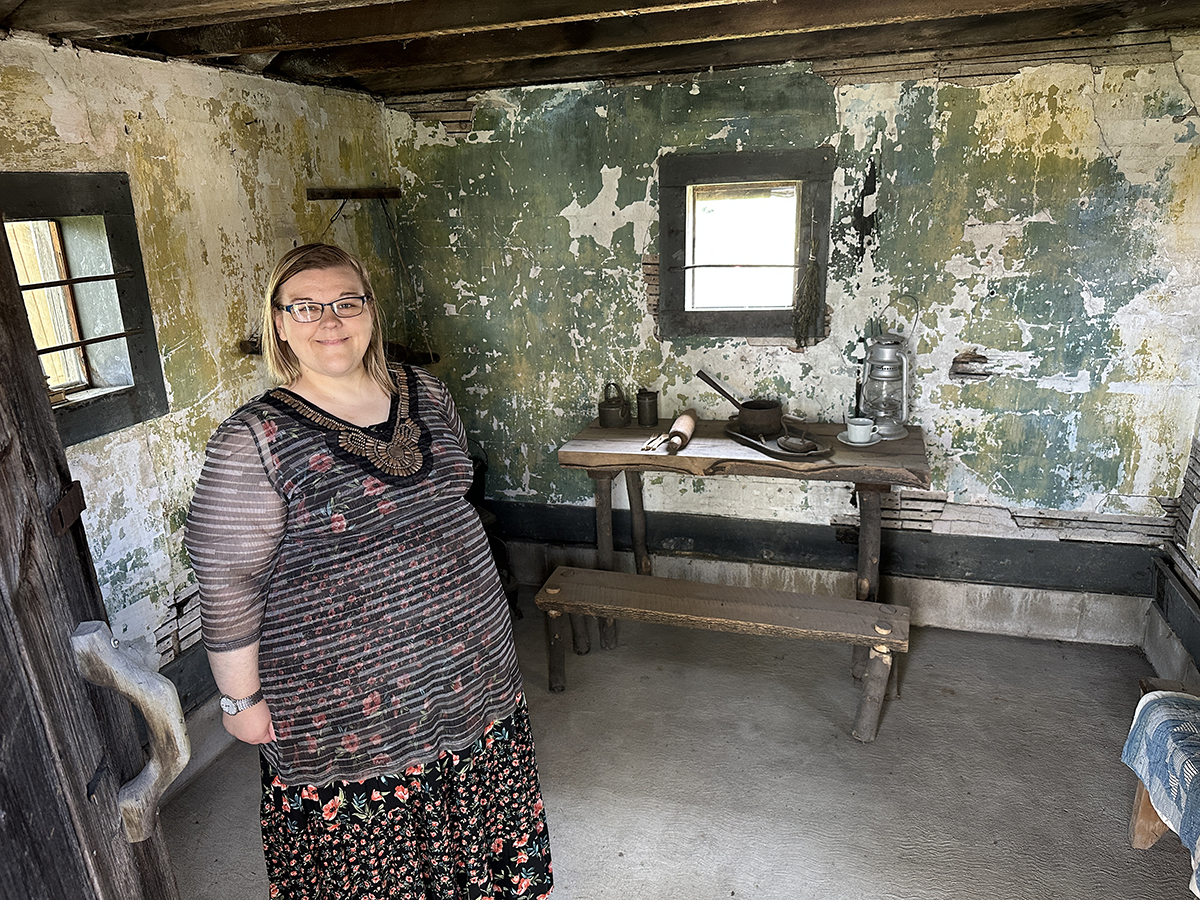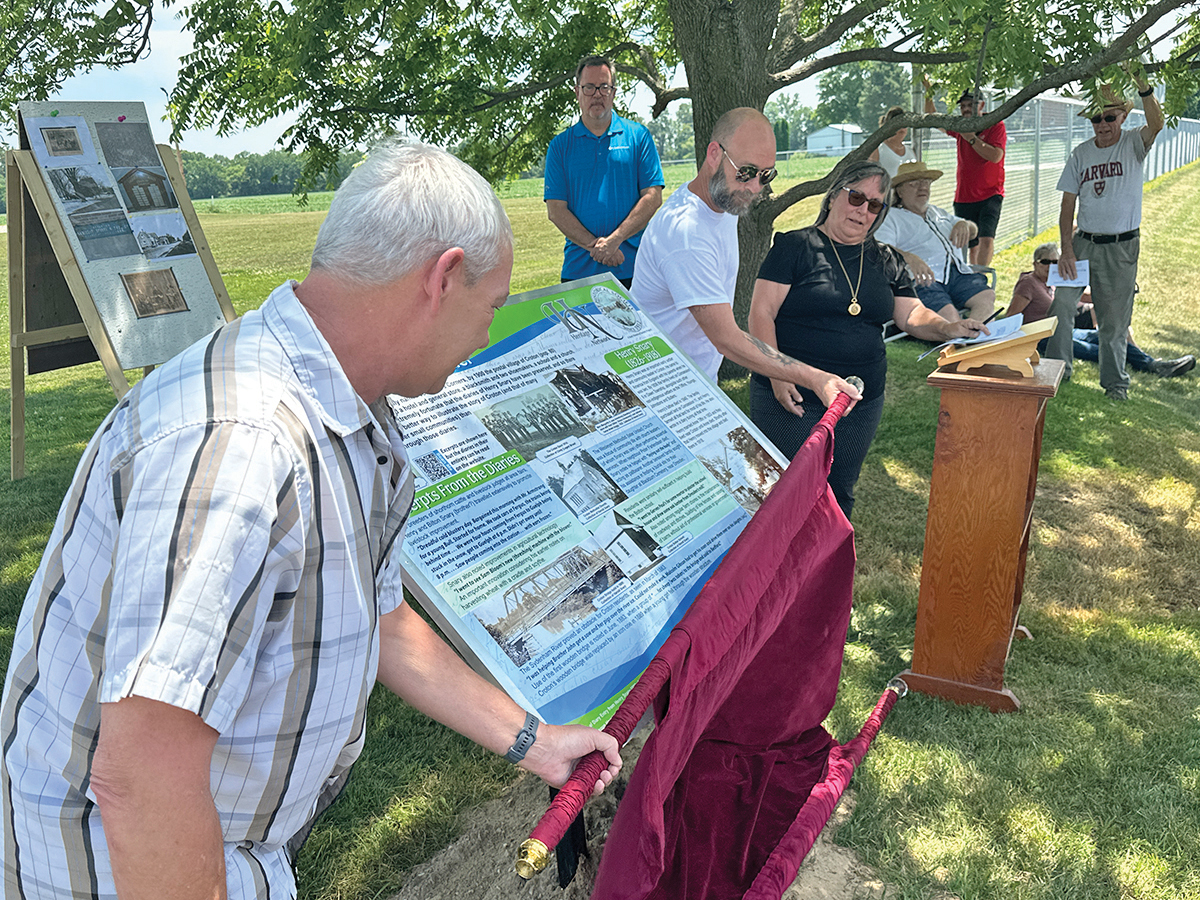Killer Bees’ Feasey to coach Maroons

Three months until farm practice board gives Buurma ruling
March 29, 2021
Heather Wright/The Independent
It could take three months for the Normal Farm Practices Protection Board to decide whether David Buurma’s biosolid fertilizer storage on his Churchill Road farm is a normal farm practice.
The Brooke-Alvinston farmer launched the appeal after receiving complaints from the municipality about the storage bunker on his property. Buurma has been using a concrete bunker on his farm in the north end of the township to store biosolids – a legal fertilizer made from human waste – sold to him by Lasalle Agri which is operated by members of the Buurma family. David Buurma is also a director of Lasalle Agri.
Buurma, in his witness statement, said Brooke-Alvinston’s administrator seemed to think the storage was part of the commerical operation. So, he launched the case with the board to get a clear ruling that what he was doing was part of a normal farming operation.
“I am centrally storing fertilizer for the exclusive use of the Buurma Acres Farm Unit,” he said in his witness statement submitted during the six-day hearing. Buurma owns 55 farm parcels with about 5,000 acres under the names 1838107 Ontario LTD and LaSalle Farms, which he calls the Buurma Acres Farm Unit. He estimated he had about 2,000 tonnes of the biosolids stored at the Churchill Line farm to be used over the course of nine months over his grain acreage “on an as needed basis.” The concrete bunker, he told the hearing, can hold up to 4,000 tonnes of biosolids.
The storage, he says, provides “economies of scale” so he wouldn’t have to invest in other fertilizer storage facilities when expanding.
It would also allow him to “safely monitor” it by centrally storing it, adding it was “carefully covered in poly plastic and stored on a concrete pad. There is no leakage or run off.
“By covering the fertilizer and keeping it dry, Buurma Acres ensures that no significant odours emit to abutting lands.”
But that is not what neighbours told the four member normal farm practices board.
Mary Ellen King, who lives down Churchill Line and farms about 2,500 acres, spoke at the hearing.
“It’s putrid. It’s sickly, it’s rotten. It’s not a farm smell. It’s something I’ve never smelled before. And I try to avoid it,” she says.
Two other neighbours, both who had farmed, testified about the odour as well, saying it would saturate clothing and even stick to sandwiches hours later in the damp weather.
In closing arguments, Buurma’s lawyers dismissed that testimony, downplaying the trio’s farm experience saying their evidence was subjective. Trent Johnson added the farmers had never complained to Buurma about the odours before.
Instead, Johnson pointed to their expert witnesses – including farmers who had used the material – who agreed storing large amounts of fertilizer is normal practice on larger farms. Trent Johnson added it’s clear Buurma is only using it on his farm. “Given the agricultural use, and rural nature of the subject lands, and those that surround the subject lands, the subject lands are an ideal location for the centralized storage,” he told the board.
And he rejected the idea that the biosolid fertilizer “should somehow be treated differently than other fertilizers.” The municipality in its bylaws specifically talked about biosolid fertilizer. “Whether they like it or not, it’s regulated under the Canadian Fertilizers Act. It’s regulated as a fertilizer.”
But Brooke-Alvinston’s lawyer, Peter Pickfield, argued his witnesses showed “the product which is being stored has the specialized characteristics that necessitates special consideration of storage.” He added Mike Muffels, an engineer with GHD, says “the biosolid properties of fertilizer will reactivate,” which other fertilizers do not. “And under open storage conditions, the greater exposure to moisture and humidity and the higher the volume of material stored, the greater the risk of off site odor and combustion.”
Pickfield argued the former silage bunker which now holds the biosolids fertilizer wasn’t constructed to keep it dry and that’s creating problems. He says most farmers follow the rules of the fertilizer label, and the manufacturer of this material says it must be stored in a dry place. The manufacturer, he says, instructs farmers to “purchase only the quantities that may be required for crops. Estimate required fertilizer quantities as accurately as possible; store no more than one tonne of fertilizer, no longer than the immediate use.”
Pickfield also pointed out that the zoning bylaws don’t speak to fertilizer being stored on agricultural land, only commercial zoning does.
And he says the neighbours who testified for the municipality were well qualified to understand the issues before the board, and that they had never talked to Buurma about their concerns should not matter.
“There’s an obligation on the operator who is generated to also consult with his neighbors in my submission, neighbors in my submission, and the circumstances.
“I don’t think it’s appropriate to set a standard that a resident can only have a legitimate concern, if it has to proactively complain about the issue. That’s an indicator that you’re asking the resident to be the policeman rather than asking the generator of the impact to address the issue,” says Pickfield.
The municipality’s lawyer asked the board to find this is not a normal farm practice or to give guidance on its proper storage on the farm.
“There’s a regulatory gap in the storage of this fertilizer. It’s governed by the fertilizer Fertilizers Act. The only available guidance is a manufacturer’s label that would be stored in a dry place or recommendation to which the subject practice does not adhere. The manner of storage of the fertilizer in the subject property is not consistent with the standard of dry storage set out in the manufacturer’s label.”
The board will review the hours of arguments and give a decision in 90 business days by releasing its report.
NEXT
Dawn-Euphemia man hid in a field after car crash
PREVIOUS
Thirteen residents of Sarnia rest home COVID-19 positive

Killer Bees’ Feasey to coach Maroons
July 12, 2025
Read More

Still standing (with some help) after 200 years
July 12, 2025
Read More

Remembering Croton
July 12, 2025
Read More

Lambton lands part of 30×30 project
July 11, 2025
Read More
